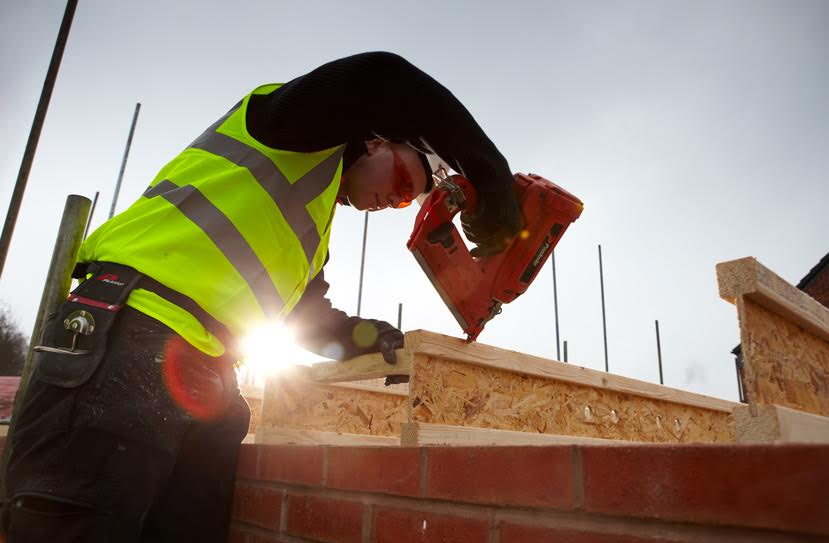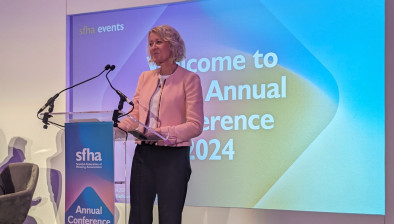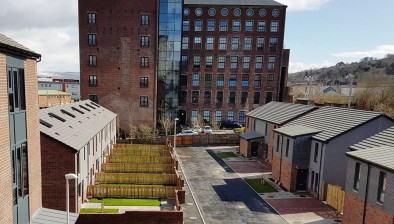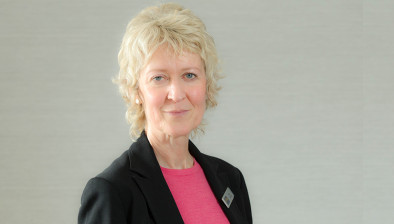Surging building costs threaten plans to tackle housing emergency, warns SFHA

Soaring building costs and uncertainty over new standards have left a significant funding gap in the Scottish Government’s efforts to end the housing emergency, according to a report from the Scottish Federation of Housing Associations (SFHA).
In its latest Policy Paper, Delivering the Social Homes We Need, launched ahead of the 2026 Holyrood election, SFHA revealed the average cost of building a social home had increased by around 30% in just four years from £150,293 in 2019 to £195,077 in 2023.
It added that current figures are likely to be even higher still, with some housing associations facing costs of up to £300,000 per home for projects which were either smaller in scale, specialist in provision, or situated in remote and rural areas.
The report comes just weeks after the cabinet secretary for housing, Máiri McAllan MSP, announced a four-year £4.9 billion plan for the affordable housing budget- made up of a combination of public and private money.
Whilst this increased investment, as well as the confidence provided by multi-year funding, has been welcomed by SFHA, it said its own research into housing need revealed the Scottish Government would fall short of the investment required to end the housing emergency.
Its research in partnership with Shelter Scotland and CIH Scotland showed that Scotland must build over 15,000 homes per year over the course of the next parliament, which will require at least £8.2bn of public investment alone. The Scottish Government has yet to confirm how much of its £4.9bn commitment is public money, with further details expected to be announced at a Spending Review when the Scottish Budget is announced in January.
Last year, in an effort to unlock greater investment in housing, the Scottish Government established the Housing Investment Taskforce, which was made up of a selection of housebuilders, local authorities, private lenders and housing associations and supported in its work by the Scottish National Investment Bank.
In its final report published in June, the Taskforce set out 28 recommendations for unlocking existing and new commitments to investment in housing.
Whilst many actions in the report, as well as the Taskforce’s overall aims, were welcomed by SFHA, it noted that the role of private finance was to supplement public investment and urged the Scottish Government to heavily increase long-term funding in its Affordable Housing Supply Programme.
And amid a challenging economic outlook for the country’s housing associations, SFHA’s Policy Paper has warned that uncertainty over new standards is damaging efforts to end the housing emergency.
It said the cumulative weight of proposed and incoming standards – covering areas including building safety, accessibility and energy efficiency – are increasing risk for housing associations and hampering efforts to deliver new homes.
Taking the Scottish Government’s proposed new energy standard, the Social Housing Net Zero Heat Standard, as just one example, according to a report from the Scottish Housing Regulator, the cost for social housing providers to decarbonise their homes by 2030 could be as high as £9.6bn, with the Scottish Government’s own modelling suggesting costs could reach around £6bn.
Figures earlier this month showed the number of social homes started in Scotland was at its lowest level since records began in 1997, something SFHA has said underlines the wider impact of economic and policy uncertainty.
SFHA’s policy lead, Eli Harji, who authored the report, said rising building costs and wider economic uncertainty meant Scotland faced a perfect storm in dealing with the housing emergency.
She said: “The Scottish Government’s commitment to a four-year £4.9bn investment in housing is a step in the right direction, particularly as it’s a longer-term budget, but not only is this still short of what’s required, we still don’t know how much of this commitment is public money.
“According to SFHA’s research, over the course of the next parliament, Scotland must build over 78,000 homes just to meet housing need, something we know will cost at least £8.2bn. And it’s crucial this is made up of public money, so housing associations can then use it to leverage in additional private finance.
“Scotland’s housing associations are operating in an increasingly challenging financial environment underlined by the huge cost increases of building homes and the damaging impact of policy uncertainty, particularly around issues such as energy efficiency.
“Whilst we fully support individual standards which can support Scotland’s social tenants, improve energy efficiency and overall health and safety, there must be a co-ordinated approach which provides the sector with certainty.
“So, as well as striving to meet this £8.2bn public investment in the Affordable Housing Supply Programme over the next parliament, the Scottish Government must urgently clarify the funding available to meet new standards. Only then can we end the housing emergency.”
A Scottish Government spokesman said: “We have a strong track record in affordable housing, having delivered more than 140,000 affordable homes with over 100,000 for social rent.
“This is 47% more per head of population than England and 73% more than Wales as of March 2024.
“Last month, we published the Housing Emergency Action Plan which ensures that £808 million will be available for affordable homes in Scotland this year.
“This includes increasing our acquisitions fund to £80m – bringing the total of our additional targeted investment to £120m since the emergency was declared.
“Our Housing Bill included measures to allow councils to increase the council tax premium on second homes which could, in turn, increase the number of homes available to renters and buyers.”
















